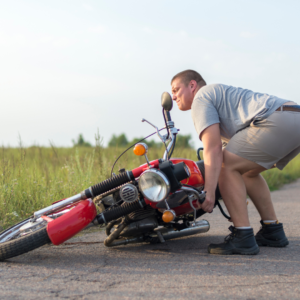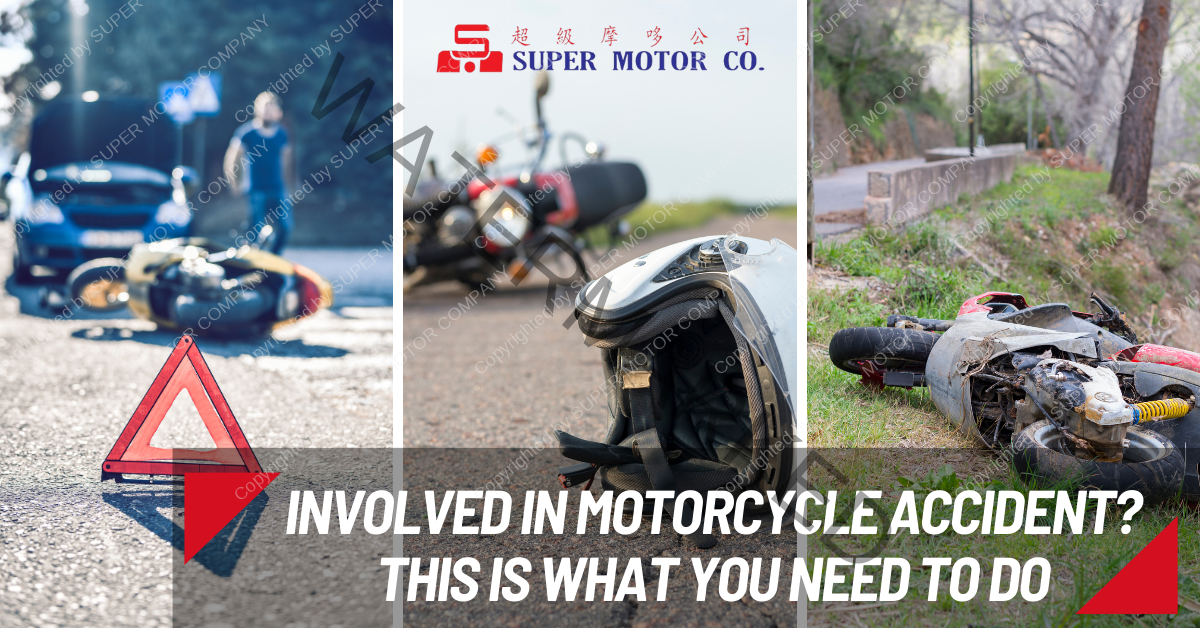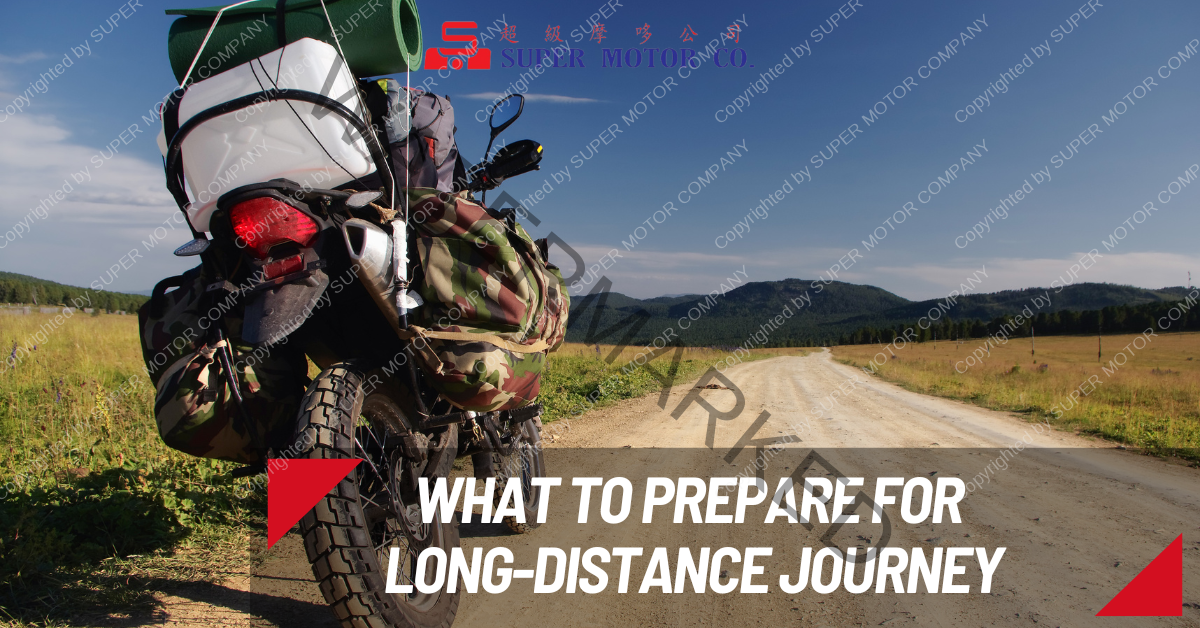Even if you practice safe and cautious riding, you are still exposed to the risk of being involved in motorcycle accident. When it occurs, you may find yourself in a state of panic, contemplating the next steps to take. Whether assessing injuries, exchanging information, or contacting authorities, it’s essential to follow a systematic approach. Being prepared and level-headed ensures a more confident and responsible response to the situation that unfolds after a motorcycle accident.

During an Accident
Stay Calm & Check Yourself for Any Injuries
Pause, breathe deeply, and compose yourself while assessing your motorcycle’s situation. Thoroughly check for injuries on yourself and others. Remaining composed is crucial for making well-thought-out decisions easily and promptly if necessary. Staying calm enhances your ability to navigate the circumstances, ensuring a measured response and prioritizing safety.
Move Your Car to a Safe Location
If your motorcycle suffers moderate damage but is still drivable, activate hazard lights and move it to the roadside or an emergency lane when you involved in motorcycle accident. This proactive action prevents traffic congestion, lowering the risk of further accidents. Swiftly relocating your motorcycle enhances road safety, minimizes disruptions, and ensures the smooth flow of traffic.
Check the Exterior of Your Motorcycle
Once you’ve ensured everyone’s safety, exit your motorcycle and verify that others involved in the accident are also in a safe condition. If you observe severe injuries, promptly call emergency services for assistance. Subsequently, inspect the extent of damage to your motorcycle by walking around it and examining the affected areas.
Document the Scene & Exchange Contact Information
As evidence, capture images of the damage caused to your motorcycle in the accident. Additionally, remember to photograph the accident location and any tire marks on the road. These pictures are crucial and can protect you if you’re wrongly held responsible for an accident not caused by you.
Don’t forget to record details of the driver and vehicles involved in the accident. This includes:
License plate number
Motorcycle model and color
Driver’s name, address, and phone number
Driver’s identification and driver’s license number
Witness names, addresses, and phone numbers

After the Accident
Seek Medical Attention
Seek medical attention even if injuries seem minor to rule out hidden or delayed issues. Prompt evaluation ensures early detection and appropriate treatment, preventing potential complications from overlooked injuries after an accident.
File a Police Report
You need to file a police report within 24 hours of the accident to ensure its validity. Don’t forget to bring your driver’s license and identification.
The on-duty officer will record the accident details and your personal information. After the investigation, they will determine responsibility and issue a summons. The summons must be paid within a month.
Insurance Claim
Contact your insurance promptly for claims, but if at fault for minor damages, consider preserving your No-Claim Discount. The insurer advises, arranges tow to an authorized repair shop crucial for valid claims. Failure to use the authorized shop may void claims. A dispatched loss adjuster assesses damage, determines responsibility, and informs the insurance company of the claimable amount once a decision is reached. Claims processable through your or the other party’s insurance.
Send Your Motorcycle to the Authorized Repair Shop
If you intend to file an insurance claim for the damage sustained by your motorcycle, you need to take your motorcycle to the authorized repair shop designated by your insurance company. Failure to do so may result in the rejection of your insurance claim.

Empower yourself: Everyone needs to know what to do when involved in a motorcycle accident. Preparedness is key to a confident and responsible response in critical moments of crisis.
In conclusion, even with safe riding practices, the risk of a motorcycle accident persists. In such moments, maintaining calmness is paramount. Whether evaluating injuries, exchanging details, or contacting authorities, a systematic approach is crucial. Preparedness and composure lead to a confident and responsible response in the aftermath of a motorcycle accident.







[…] Also Read: Involved in Motorcycle Incident? This is What you Need to Do […]